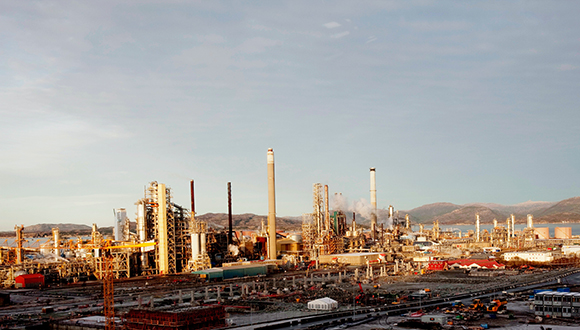Wed, 28 July, 2021
Matthew Weltevreden has become the latest Industry PhD Student with NSIRC to be published in an International Journal.
The paper is available open access in volume 192 of the International Journal of Pressure Vessels and Piping.
An industrial doctorate student since 2018, Matt's research looks into the application of probabilistic fracture mechanics in quantifying the role of welding residual stress in fracture assessment.
His research is supported by the TWI Core Research Programme, with industrial supervision from Dr. Isabel Hadley, TWI Technology Fellow and Visiting Professor for the Royal Academy of Engineering, and academic supervision from Dr. Harry Coules, Lecturer in Structural Integrity at the University of Bristol.
Speaking about the publication, Matt said, “Pipe girth welds are commonly used in a range of industries, including nuclear energy, offshore engineering, and construction of land pipelines.
This work focuses specifically on axial, i.e, weld-transverse residual stresses in pipes as they have a direct influence on fracture development and are often significant for integrity and safety assessments. However, mapping residual stress profiles within industrial girth weld components is notoriously difficult and costly to perform using direct measurements and available finite element modelling techniques. Therefore, generalised upper bound assumptions can be implemented into safety and fracture assessments following the advice of associated standards.
Pipe girth weld measurement data gathered from numerous studies is statistically interpreted to provide realistic through-thickness stress distributions for use in fracture assessments. The influence of probabilistic treatment of transverse residual stress in a structural integrity assessment is thoroughly analysed and discussed.”
 NSIRC PhD topics have industrial focus, with the researching being called for by a range of sectors such as nuclear energy, offshore, oil and construction. Photo: Unsplash
NSIRC PhD topics have industrial focus, with the researching being called for by a range of sectors such as nuclear energy, offshore, oil and construction. Photo: Unsplash
Matt also acknowledged those who supported his publication, “I would like to thank my supervisors Dr. Isabel Hadley and Dr. Harry Coules for their constant support throughout this research. I am also thankful for the assistance from Paul Brown for adjusting the necessary specifications of this research into CrackWISE and my sincerest regards to the R6 residual stress sub-group committee for their research, knowledge and ever illuminating conversations.”
Research based on the needs of industry
In discussing the publication, Dr Hadley highlighted how this research forms part of several wider initiatives within TWI and NSIRC;
- documenting the evidence base for existing structural integrity assessment procedures as BS 7910 and R6,
- enhancing the procedures to increase their accuracy and, where possible, to reduce conservatism,
- developing the use of probabilistic techniques in fracture and fatigue assessments.
Dr Hadley said, "The results will be shared with the BS 7910 and R6 committees so that they may be considered for inclusion in future revisions of both these procedures, which are extensively used in the design and assessment of safety-critical engineering plant and structures."
Speak to Matthew Weltevreden about his research: